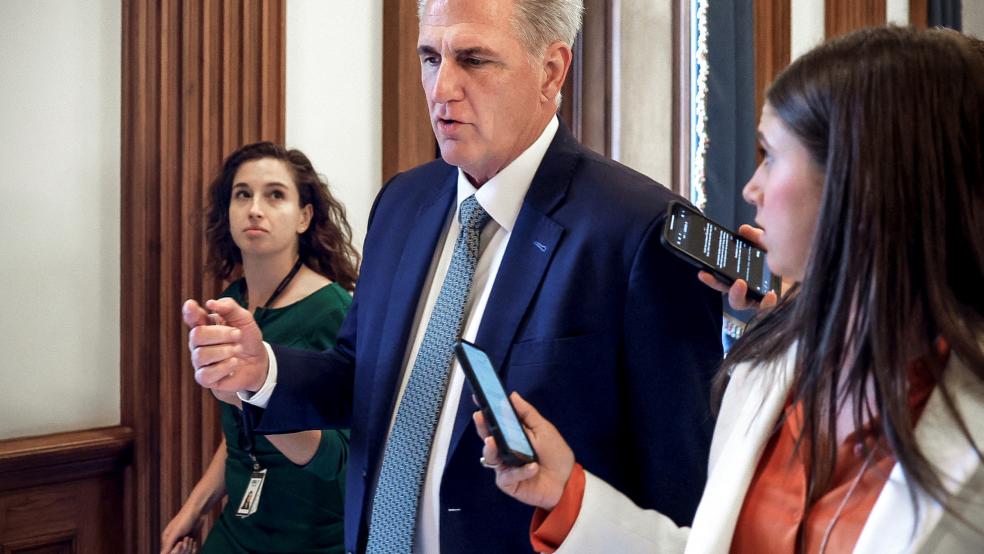As we wait for the election vote totals to come in tonight — and probably over the next few days or weeks — let’s look at what may lie ahead if, as is widely expected, Republicans win control of at least one chamber of Congress.
The Washington Post’s Toluse Olorunnipa states the obvious: Tuesday’s results will determine the future of Joe Biden’s presidency, and could determine whether the president faces two years of GOP-led probes and mounting calls to step aside in 2024.
“Most analysts expect Republicans to take the House, which alone could engulf the White House in investigations by hardcore supporters of former president Donald Trump,” Olorunnipa writes. “But even more damaging is the possibility of losing the Senate, considered a toss-up, which would make it hard for Biden to continue elevating federal judges at the same clip and could rule out any Supreme Court confirmation if a vacancy arises.”
In terms of policy and legislation, though, a Republican win could usher in a return to governing by crisis given that many in the party have been open about their plans to use critical bills like those funding the government and raising its borrowing limit as leverage to advance their agenda and reverse Biden’s.
First, the need to raise the nation’s borrowing limit could cast a dark cloud over both the lame duck session to end 2022 and the legislative agenda for 2023. Democrats could look to raise the debt ceiling in the lame duck session, either through attaching an increase to a bigger, must-pass government funding bill or through a separate reconciliation bill. They could also try to repeat the arrangement they worked out with Senate Minority Leader Mitch McConnell last year, in which Republicans allow Democrats to lift the limit on their own. Analyst Chris Krueger of the Cowen Washington Research Group notes that a number of retiring Republican senators would likely be willing to go that route and defuse the threat of a default in 2023.
If the debt limit isn’t addressed before the next Congress is sworn in, it will likely be the subject of a 2023 standoff, with Republicans looking to force spending cuts in exchange for any increase.
What else might get done legislatively? Probably not much.
“Legislation that is signed into law will be hard to come by in 2023, and even more so in 2024 as another election cycle heats up — although there should be some incentives for bipartisan bills to get committee votes every now and again during the 118th Congress,” John T. Bennett writes at Roll Call. “Analysts say the parties have plenty of reasons to get together on a farm bill, which would please both sides’ rural and business constituencies. There is also routine bipartisanship on the annual defense policy bill, which has become law every year for more than six decades.”
Brookings Institution Senior Fellow John Hudak tells Roll Call that both parties have said relatively little about what they want Congress to accomplish over the next two years. That means that voters are casting their ballots “on personalities and issues, but not on actual solutions to fix problems,” he said.
And if Republicans control the Senate as well as the House, Biden said Friday that the next two years would be “horrible” — but added, “The good news is I’ll have a veto pen.”
The bottom line: We’re unlikely to see major legislation along the lines of the big bills Biden signed in his first two years in office. The Roll Call headline sums it up pretty well: “A noisy, but unproductive, Congress looms.”





